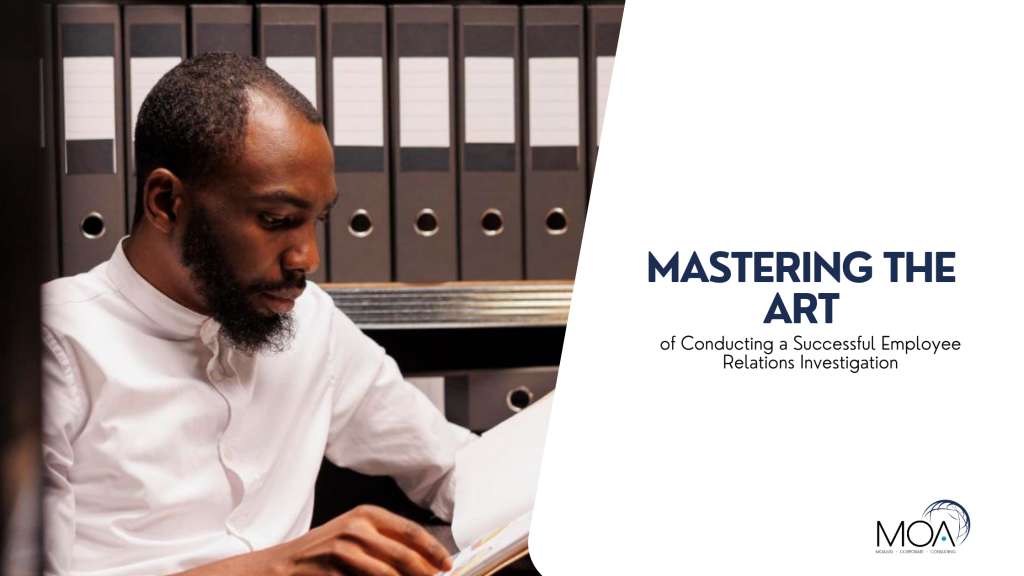In any workplace, maintaining healthy employee relations is paramount to fostering a positive work environment and ensuring organizational success. However, when conflicts or issues arise, conducting a thorough and fair investigation is crucial for resolving disputes and upholding trust and integrity within the organization. In this blog post, we\’ll explore the essential steps to conducting a successful employee relations investigation.
1. Establish Clear Policies and Procedures:
Before any conflicts occur, it\’s essential to have well-defined policies and procedures in place for handling employee relations issues. Ensure that these policies are communicated clearly to all employees and managers so that everyone understands the process for reporting and investigating complaints or grievances.
2. Act Promptly and Impartially:
When an employee complaint or issue arises, it\’s important to act swiftly and impartially. Assign an investigator who is unbiased and has the necessary training and expertise to handle the investigation effectively. Prompt action not only demonstrates the organization\’s commitment to addressing concerns but also helps prevent the escalation of conflicts.
3. Gather Relevant Information:
Collect all relevant information and evidence related to the complaint or issue. This may include interviewing the parties involved, reviewing documents, emails, or other relevant communication, and gathering witness statements. It\’s essential to approach the investigation with an open mind and gather facts objectively, without making assumptions or jumping to conclusions.
4. Conduct Interviews with Sensitivity:
When interviewing employees, approach the process with empathy and sensitivity. Create a comfortable and confidential environment where employees feel safe sharing their concerns. Listen actively, ask open-ended questions, and ensure that all parties have the opportunity to provide their perspective without fear of retaliation.
5. Maintain Confidentiality:
Respect the confidentiality of all parties involved in the investigation. Avoid discussing details of the investigation with individuals who are not directly involved or need-to-know. Protecting the privacy of those involved helps maintain trust and ensures a fair and impartial process.
6. Analyze Findings Objectively:
Once all the information has been gathered, analyze the findings objectively and assess the credibility of the evidence presented. Consider all perspectives and weigh the evidence carefully before reaching conclusions. It\’s important to base decisions on facts rather than assumptions or personal biases.
7. Take Appropriate Action:
Based on the findings of the investigation, take appropriate action to address the issue and resolve the conflict. This may involve implementing corrective measures, providing training or counseling, or taking disciplinary action if necessary. Ensure that any actions taken are fair, consistent, and in line with company policies and legal requirements.
8. Follow Up and Monitor Progress:
After the investigation is concluded and actions have been taken, follow up with the parties involved to ensure that the issue has been resolved satisfactorily. Monitor progress and provide support as needed to prevent similar issues from arising in the future.
After the investigation is concluded and actions have been taken, follow up with the parties involved to ensure that the issue has been resolved satisfactorily. Monitor progress and provide support as needed to prevent similar issues from arising in the future.

